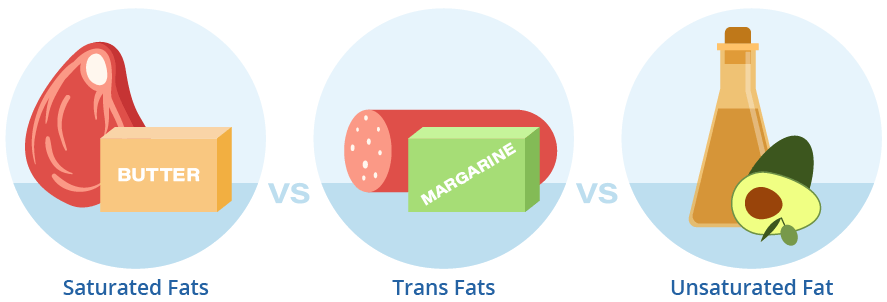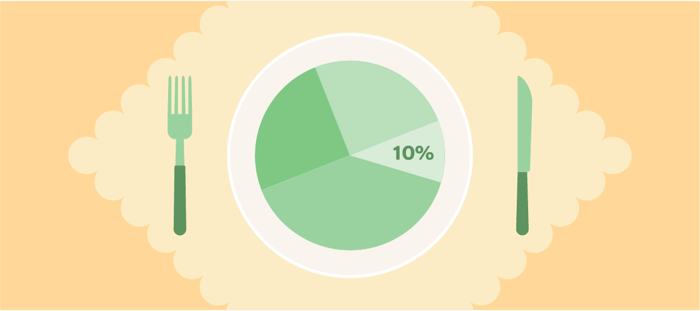Table of Contents
Did you know that not all fats are foes to your health? In fact, certain fats are essential allies! Despite its bad reputation, dietary fat is a crucial nutrient, with some types playing pivotal roles in cell protection, inflammation reduction, and heart health. However, the key lies in distinguishing beneficial plant-based fats from their unhealthy counterparts. Understanding and incorporating healthy plant-based fats into your diet can ensure your body receives essential nutrients for optimal functioning.
In this guide, we'll explore the world of vegan healthy fats, uncovering their benefits and providing tips on seamlessly integrating them into your diet. Join us as we delve into identifying and embracing these vital nutrients for a healthier, well-nourished you.
Understanding Fat: More Than Just Calories

Fat, scientifically known as lipid, is more than just a dietary component; it's a vital nutrient essential for numerous bodily functions. This might surprise those who've only heard of fat in a negative light. Yet, consuming the right amount of dietary fat daily is crucial for the absorption of fat-soluble vitamins (E, K, and D), energy production, temperature regulation, and the formation of cell structures and hormones.
It's essential, however, to balance fat intake. The general guideline is to limit total fat consumption to no more than 35% of your total daily calories. Remember, fat is calorie-dense, providing about 9 calories per gram. Overconsumption, even of healthy fats, could lead to unwanted weight gain.
Not All Fats Are Created Equal
Dietary fats differ in their chemical structures, impacting health in various ways. They fall into four primary categories:
- Polyunsaturated fats
- Monounsaturated fats
- Saturated fats
- Trans fats
Each type of fat interacts differently with your body, influencing overall health. Therefore, it's crucial to make informed choices, prioritizing 'good,' healthy fats over 'bad' ones in your diet. Let's delve deeper into each category and understand their roles and impacts."
Identifying the Healthiest Fats: Unsaturated Fats

When it comes to healthy fats, unsaturated fats are widely recognized as the best choice for maintaining good health. These fats are usually liquid at room temperature and are found in various vegetable oils. There are two primary types of unsaturated fats: polyunsaturated fatty acids (PUFAs) and monounsaturated fatty acids (MUFAs).
1. Polyunsaturated Fats
These fats, encompassing omega-3 and omega-6 fatty acids, are known for their potential to improve cholesterol levels. They can lower the 'bad' LDL cholesterol, which is beneficial for heart health. Excessive LDL cholesterol can lead to arterial plaque buildup and increase the risk of atherosclerosis and hypertension.
Yet, it's crucial to balance the intake of omega-6s and omega-3s. An imbalance, particularly a dominance of omega-6s - a common feature in Western diets - is linked to increased inflammation and cardiovascular problems. Omega-3s, on the other hand, have anti-inflammatory properties and are essential for brain health, making it advisable to ensure a healthy intake of these fats.*
2. Monounsaturated Fats
Consuming monounsaturated fats can also positively impact cholesterol levels, decreasing 'bad' LDL and boosting 'good' HDL cholesterol. Additionally, these fats are beneficial for blood sugar control, which is particularly significant for those managing or preventing diabetes and other metabolic disorders.
In summary, incorporating a balanced mix of PUFAs and MUFAs into your diet can substantially contribute to overall health, particularly in terms of heart and metabolic health.
Distinguishing Between Healthy and Unhealthy Fats

Understanding the difference between healthy and unhealthy fats is key to maintaining good heart and immune health. Here's a breakdown:
- Saturated Fats: Predominantly found in animal-based products such as meats and dairy, saturated fats are linked to higher cholesterol levels and increased risk of heart-related issues. The Dietary Guidelines for Americans advise keeping saturated fat intake below 10% of your daily calories to maintain heart health.
- Trans Fats: Often created during food processing (like the hydrogenation process that turns vegetable oils into solid margarine), trans fats are particularly harmful to heart health. They can adversely affect cholesterol levels and promote inflammation. Although largely banned in American food production, trace amounts of natural trans fats still exist in some meats and dairy products. The key advice is to minimize or eliminate trans fat consumption, as your body has no essential need for them.
In contrast, healthy fats – mainly plant-based monounsaturated and polyunsaturated fats – can counteract these issues. They play a role in reducing inflammation, improving cholesterol levels, and protecting cellular health. These benefits contribute to the lower cholesterol levels often observed in vegan diets.
A simple guideline to identify healthy versus unhealthy fats is their state at room temperature. Generally, if a fat is liquid at room temperature (like vegetable oil), it's likely a healthier unsaturated fat. If solid (like butter or lard), it's probably a saturated or trans fat. Exceptions exist, such as coconut oil, a plant-based saturated fat potentially more beneficial than animal-derived ones. Additionally, some vegetable oils, like corn oil, have a higher omega-6 to omega-3 ratio, potentially leading to inflammation. While this rule of thumb isn't foolproof, it provides a practical starting point for distinguishing between unsaturated and saturated fats.
Boosting Heart Health with Healthy Fats: Practical Tips

Incorporating more unsaturated fats into your diet is a proven strategy for enhancing heart health, as recommended by the 2015-2020 Dietary Guidelines for Americans. Here's how you can make this shift:
- Opt for Plant-Based Fats: A simple switch like using olive oil instead of butter in cooking can significantly increase your intake of healthy monounsaturated fats. This small change can contribute to better overall heart health.
- Embrace a Plant-Based Diet: Shifting towards a diet rich in fruits, vegetables, nuts, and seeds, while reducing animal-based foods like meat and dairy, not only ensures a higher intake of beneficial vegan fats but also supports overall heart health.
- Limit Processed Foods: Processed foods often contain higher levels of unhealthy trans fats. By choosing whole, fresh foods more frequently, you reduce your intake of these harmful fats.
- Supplement Wisely: For those on a vegan or vegetarian diet, getting enough of certain fats, such as omega-3 fatty acids, can be challenging. In such cases, consider a vegan-friendly supplement like Omega-3 algae oil pills to meet your nutritional needs.
Remember, the key to a heart-healthy diet is balance. Incorporating these tips into your daily routine can help you make more informed choices about the fats you consume, leading to better health outcomes.
9 Healthy Plant-Based Fats
Try adding these healthy fats to your diet for better heart health!
1. Algae oil

A standout for vegetarians and vegans, algae oil is a rare plant-based source of both EPA and DHA, making it an excellent substitute for fish-based omega-3 supplements. It's said to be beneficial for heart health and can be incorporated into the diet through Vegan Omega-3 supplements.*
2. Avocados

Not just a source of monounsaturated fats, avocados are also rich in fiber, potassium, and vitamins like B6, C, and E. They're great in various dishes, supporting overall health, and are particularly beneficial for the immune system.
3. Coconut oil
Unique among plant-based fats due to its high saturated fat content, coconut oil contains lauric acid, which may positively influence cholesterol levels. Suitable for vegan baking and cooking, it offers a distinct flavor but should be used in moderation.
4. Walnuts

These nuts are an excellent source of the omega-3 fatty acid ALA and can easily be added to various meals. Walnuts not only contribute essential fatty acids to your diet but also offer additional health benefits due to their nutrient profile.
5. Chia seeds
Beyond omega-3s, chia seeds are a fantastic fiber source, aiding in cholesterol management. They're versatile, easily added to smoothies, puddings, and other dishes for a nutritional boost.
6. Olive oil

Particularly extra-virgin olive oil, which is minimally processed, is a healthy source of monounsaturated fats. It's ideal for dressings, dips, and low-heat cooking, and has been linked to reduced cardiovascular disease risks.
7. Flaxseeds
Packed with ALA and fiber, flaxseeds are a valuable addition to a heart-healthy diet. Grinding them improves nutrient absorption, making them a versatile ingredient for smoothies, baking, and more.
8. Dark chocolate

Rich in oleic acid, like olive oil, dark chocolate (especially with higher cocoa content) offers heart-healthy benefits. It's a treat that can fit into a balanced diet when consumed in moderation.
9. Sunflower seeds
A good source of both monounsaturated and polyunsaturated fats, sunflower seeds or their butter form can be a tasty addition to salads, spreads, or as a snack, contributing valuable nutrients to a plant-based diet.


